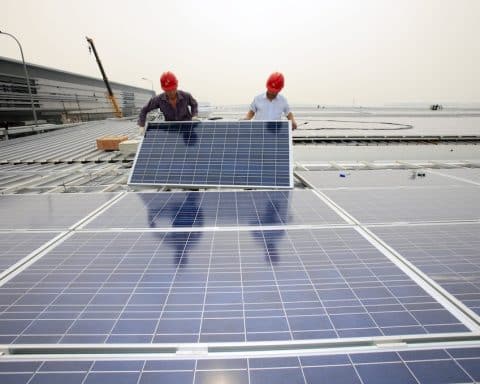I veckan släppte Amnesty International sin nya årsrapport om tillståndet för mänskliga rättigheter världen över. Rapporten ger en mycket mörk bild av utvecklingen i Kina.
På Amnestys svenska hemsida sammanfattas utvecklingen i Kina på detta områden under det föregående året på följande vis:
Kina: Regeringen fortsatte att anta nya lagar som utgör allvarliga hot mot de mänskliga rättigheterna, under skenet av “nationell säkerhet”. Nobelpristagaren Liu Xiabo dog i fängsligt förvar. Aktivister frihetsberövades och åtalades på lösa grunder såsom “omstörtande verksamhet”. Kontrollen av Internet skärptes liksom också kontroller av all form av religionsutövning. I Hongkong hotades yttrandefriheten när regeringen åtalade prodemokratiska aktivister.
Den globala rapporten är sammantaget över 400 sidor lång och finns ännu inte att läsa på svenska. Den går dock att ladda ner i sin helhet som PDF på engelska.
Inget land tilldelas i rapporten fler sidor än Kina. Inledningen till de drygt fem sidor som beskriver vad som skett i Kina lyder enligt följande:
The government continued to draft and enact new laws under the guise of “national security” that presented serious threats to human rights. Nobel Peace Prize laureate Liu Xiaobo died in custody. Activists and human rights defenders were detained, prosecuted and sentenced on the basis of vague and overbroad charges such as “subverting state power” and “picking quarrels and provoking trouble”. Police detained human rights defenders outside formal detention facilities, sometimes incommunicado, for long periods, which posed additional risk of torture and other ill- treatment to the detainees. Controls on the internet were strengthened. Repression of religious activities outside state-sanctioned churches increased. Repression conducted under “anti-separatism” or “counter- terrorism” campaigns remained particularly severe in the Xinjiang Uighur Autonomous Region and Tibetan-populated areas. Freedom of expression in Hong Kong came under attack as the government used vague and overbroad charges to prosecute pro- democracy activists.
Rapporten är viktig läsning för alla med intresse av Kina eller mänskliga rättigheter. Faktum är att landets myndigheter under förra året gjort sig skyldiga till så stora övergrepp på denna punkt att behandlingen av Gui Minhai inte ens får plats.
Mycket utrymme ges åt förtrycket mot civilsamhället, samt den allt värre situationen för etniska minoriteter i provinserna Tibet och Xinjiang. Saxat ur rapporten:
The authorities continued to use “residential surveillance in a designated location”, a form of secret incommunicado detention that allowed the police to hold individuals for up to six months outside the formal detention system, without access to legal counsel of their choice, their families or others, and placed suspects at risk of torture and other ill-treatment. This form of detention was used to curb the activities of human rights defenders, including lawyers, activists and religious practitioners.
(…)
In June, the State Council passed the revised Regulations on Religious Affairs, to come into effect on 1 February 2018. It codified far-reaching state control over every aspect of religious practice, and extended power to authorities at all levels of the government to monitor, control and potentially punish religious practice. The revised law, which emphasized national security with a goal of curbing “infiltration and extremism”, could be used to further suppress the right to freedom of religion and belief, especially for Tibetan Buddhists, Uighur Muslims and unrecognized churches.
(…)
Under the leadership of new regional Communist Party Secretary Chen Quanguo, the Xinjiang Uighur Autonomous Region (XUAR) authorities put new emphasis on “social stability” and increased security. Media reports indicated that numerous detention facilities were set up within the XUAR, variously called “counter extremism centres”, “political study centres”, or “education and transformation centres”, in which people were arbitrarily detained for unspecified periods and forced to study Chinese laws and policies.
I årsrapporten – som här kan laddas ner i sin helhet – uttrycks även oro för den ökade kontrollen av medier och internet, vilket blivit ett verktyg för att spåra upp och straffa oliktänkande.





